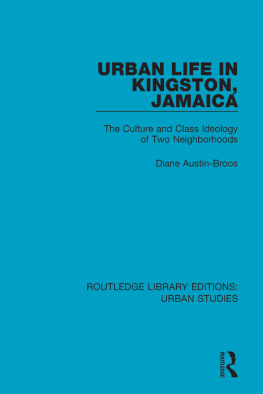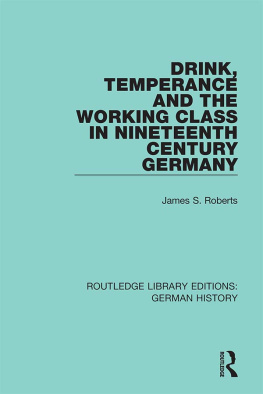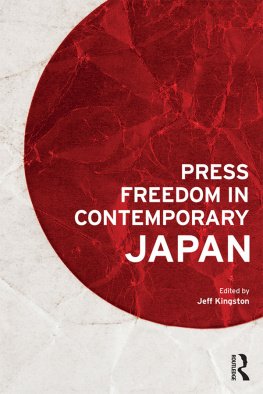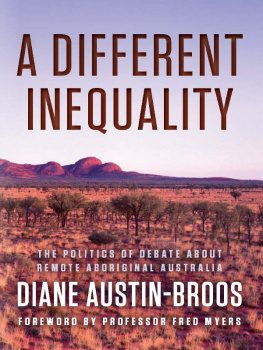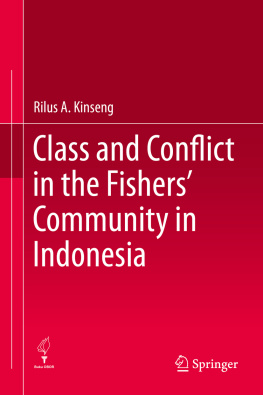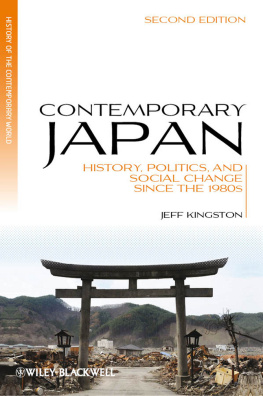ROUTLEDGE LIBRARY EDITIONS:
URBAN STUDIES
Volume 2
URBAN LIFE IN
KINGSTON, JAMAICA
URBAN LIFE IN
KINGSTON, JAMAICA
The Culture and Class Ideology of
Two Neighborhoods
DIANE AUSTIN-BROOS
First published in 1984 by Gordon and Breach Science Publishers
This edition first published in 2018
by Routledge
2 Park Square, Milton Park, Abingdon, Oxon OX14 4RN
and by Routledge
711 Third Avenue, New York, NY 10017
Routledge is an imprint of the Taylor & Francis Group, an informa business
1984 Gordon and Breach Science Publishers
All rights reserved. No part of this book may be reprinted or reproduced or utilised in any form or by any electronic, mechanical, or other means, now known or hereafter invented, including photocopying and recording, or in any information storage or retrieval system, without permission in writing from the publishers.
Trademark notice: Product or corporate names may be trademarks or registered trademarks, and are used only for identification and explanation without intent to infringe.
British Library Cataloguing in Publication Data
A catalogue record for this book is available from the British Library
ISBN: 978-1-138-89482-2 (Set)
ISBN: 978-1-315-09987-3 (Set) (ebk)
ISBN: 978-1-138-89484-6 (Volume 2) (hbk)
ISBN: 978-1-315-17976-6 (Volume 2) (ebk)
Publisher's Note
The publisher has gone to great lengths to ensure the quality of this reprint but points out that some imperfections in the original copies may be apparent.
Disclaimer
The publisher has made every effort to trace copyright holders and would welcome correspondence from those they have been unable to trace.
URBAN LIFE IN KINGSTON,
JAMAICA
The Culture and Class Ideology
of Two Neighborhoods
Diane J. Austin
GORDON AND BREACH SCIENCE PUBLISHERS
New YorkLondonParisMontreuxTokyo
For Winnie, Noel, Beryl, Eli,
and my Godson, Edson
CONTENTS
1984 by Gordon and Breach Science Publishers S.A. All rights reserved. Published under license by OPA Ltd. For Gordon and Breach Publishers S.A.
Gordon and Breach, Science Publishers
P.O. Box 786
Cooper Station
New York, NY 10276
United States of America
P.O. Box 197
London WC2 4DL
United Kingdom
58, rue Lhomond
75005 Paris
France
P.O. Box 161
1820 Montreux-2
Switzerland
48-2 Minamidama, Oami Shirasato-machi,
Sambu-gun
Chiba-ken, 299-32
Japan
ISBN 2-88124-005-8 ISSN 0275-5793. No part of this book may be reproduced or utilized in any form or by any means, electronic or mechanical, including photocopying, recording, or by any information storage or retrieval system, without permission in writing from the publishers. Printed in Great Britain by Bell and Bain Ltd., Glasgow.
The purpose of this series is to provide a forum in which the major themes and trends affecting the entire region will be explored in depth. Thus, while the island-specific approach is not eschewed, the aim is to develop perspectives on problem-solving in the area as an entirety, both on the local level and in the international context. Hence the emphasis is on the qualitative and quantitative interpretation of the economic and political culture in which the modern Caribbean operates. Historical, demographical and sociological issues, when relevant to the central focus on the series, will also be examined.
Caribbean Studies will publish the research of academic scholars working within the region, as well as Caribbeanists working internationally. Simultaneously, it is anticipated that the monographs will function as a reference data source for libraries, foundations and government agencies with an interest in the Caribbean either exclusively or peripherally.
It is the coeditors hope that the series will not only launch comprehensive Caribbean studies internationally, but that it will similarly stimulate innovative research and development of methodology suitable to comparative perspectives. Only when the Caribbean is evaluated in its broadest panorama can the true global importance of the region be appreciated.
Manuscripts may be sent to either of the two coeditors (who will be assisted by an advisory board to be selected from internationally recognized scholars).
One cannot study culture, especially the cultures of another society, without developing some sense of paradox in social life. Things are not always as they seem, and even the most laudable forms of social life can have within them the seeds of discontent and woe. This is a lesson taught by recent Jamaican history with regard to the nationalist movement that brought Jamaica independence. The ideological core of that movement was the assertion that Jamaicans themselves were competent to run the affairs of their nation. In Jamaican parlance, these aspiring leaders were educated. The Jamaican notion of education, so intimately involved with the politics of that nation, addresses not only formal qualifications, but ability in public affairs, social competence and a proper socialisation. It is a notion which in the colonial context stood for equality, in opposition to notions of color which connoted an essential inequality. Moreover, in a quite concrete sense for many Jamaican leaders higher formal education has been a transport to success and greater service to the nation. Education in proper behavior and formal qualifications has also been the means by which many Jamaicans in the post-war era propelled themselves from the insecurity of working class life into the modest security of a middle class position.
Education has been important and highly beneficial to many Jamaicans and to the nation as a whole. For this reason it rightly holds a central place among the values of Jamaicans. However, educational institutions have also played a role in Jamaica as instruments of division. The dual system of education, in part inherited from Britain, has made education in the past, and still to a great extent in the present, serve the logic of Jamaica's class relations. The inferior education often offered the working class has acted as a sieve blocking their passage out of manual labour. Not only education itself, but beliefs about education have transformed the social context in which they live. Educational values have become incorporated in an ideology of class. This study argues that the notion of the uneducated in Jamaican society has come to carry the ideological burden once associated with color discrimination. The uneducated it is often suggested deserve their position at the bottom of society, and thus does a laudable aspiration come to serve the cause of class subordination. This is the paradox of education which this study addresses, but in doing so it also raises another more basic dilemma.
The nationalist movement in Jamaica carried the interest of all Jamaicans to a confrontation with the metropolitan world, and much social science in Jamaica has been devoted to the ramifications of Jamaica's subordination in international economic and political relations. However, the ideology of education, as it permeates the everyday affairs of working class Jamaicans, points to the fact that there is still a class dynamic in Jamaican society itself, represented by a national service class becoming prominent in the affairs of the nation. In short, there is a paradox in the position of those brought to prominence and power by Jamaica's independence. No matter how committed is their struggle against metropolitan domination, because Jamaica inevitably remains a part of international trade relations, those who administer the economy are drawn into their own internal class relations; class relations which have a history and a dynamic distinctively Jamaican. Whilst this study does not ignore metropolitan dominance over Jamaica, its focus on neighborhood life makes it appropriate to point once again to the class dynamic that exists within Jamaican society.

